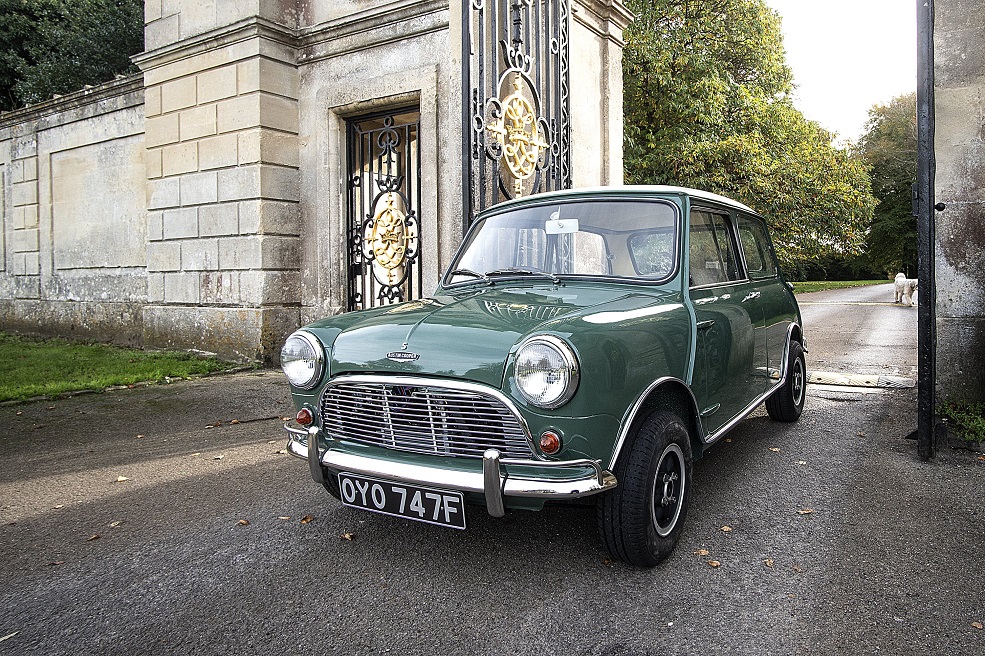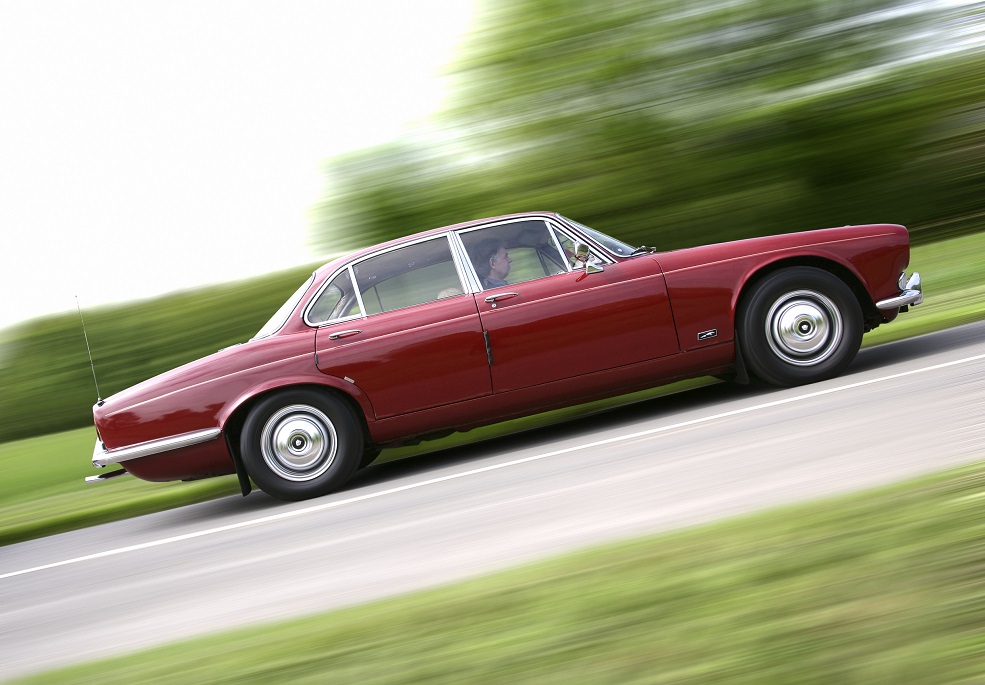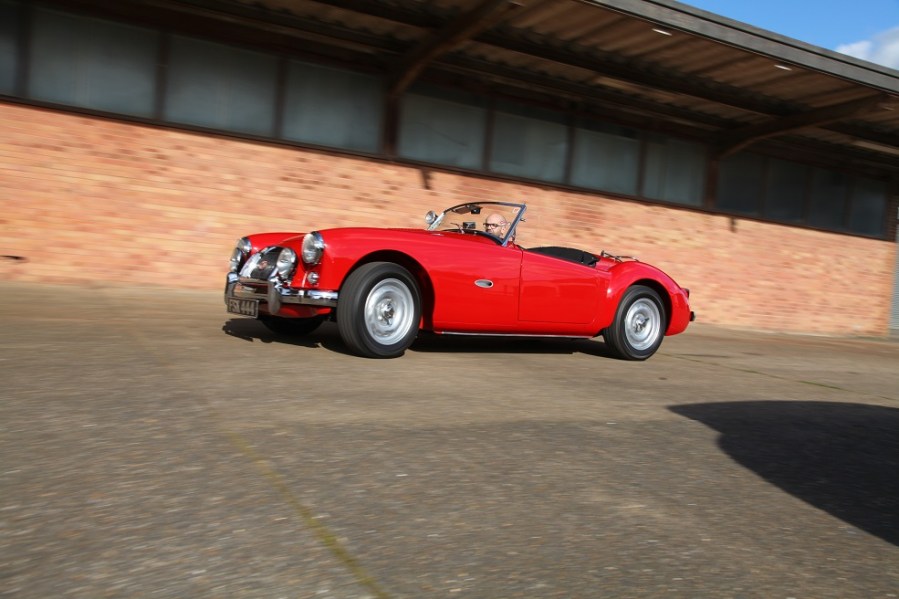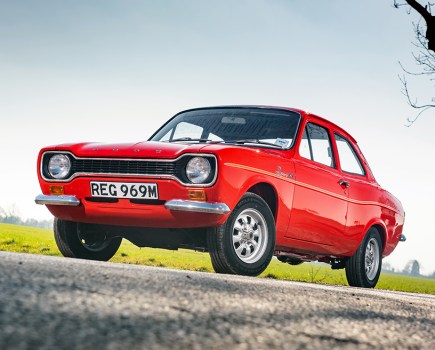New FBHVC survey reveals that more historic vehicles are on our roads and they’re travelling further.
We’re putting a greater number of classic vehicles on the road and using them more, according to a ‘mid-term’ report announced by the Federation of British Historic Vehicle Clubs. The results of the Federation’s 2019 National Cost of Ownership Survey were revealed at a press conference at the Houses of Parliament on May 14, with the overall picture one of positivity.
Historically, the FBHVC has undertaken major research projects every five years, the most recent being the 2016 National Historic Vehicle Survey. However, to gain more up-to-date insights into the attitudes and interest surrounding transport heritage, it has commissioned an interim survey split into two areas. One focused on obtaining detailed information on the costs of ownership for historic vehicle enthusiasts from respondents within the Federation’s member clubs, based on 3387 interviews with historic vehicle owners conducted in December 2018 and January 2019. The other, carried out by Kantar Research, examined the behaviours and attitudes of the UK’s adult population towards historic vehicles.
The survey found that an increase of 201,913 historic vehicles registered with the DVLA over the 2016 figures, resulting in a total of 1,241,863. Qualified on the basis of 30 years since registration, that’s a rise of 19 per cent. Of the total, almost half were cars, which showed a rise of 94,741.
The figures show that the mileage covered by these historic vehicles has also increased since 2016, with the average distance now 2214 miles per year, up from the 1124 miles per year shown in the previous report. The Federation state the possibility of a more enthusiast-based sample group this time around and the influence of record-breaking temperatures last summer, but it nevertheless is a significant increase.
And what about the costs? Well, spending on vehicles also looks to be buoyant. The estimated spend per historic vehicle is now £1489 per annum, based on them owning an average of 3.3 vehicles and a total outlay of £4913. Taking that the average spend per vehicle and multiplying it by all historic vehicles registered with the DVLA, the total spending on items associated with historic vehicle ownership is estimated to be £1.85 billion, compared with £1.4 billion in 2016.
According to the FBHVC, the motivations behind such spending appear to stem from the desire of enthusiasts to enjoy the lifestyle that surrounds historic vehicles. Indeed, the Kantar figures, based on 1236 nationally representative interviews and expanded to represent a national population of 51.4million over 16s, suggests that three million people attend historic vehicle events each year, and that there’s been a growth, albeit small, in the estimated number of people attending historic vehicle events – up from four per cent to six per cent for national events, and from two per cent to five per cent for local events. As further heart-warming evidence, 60 per cent of owners saying that owning an historic vehicle is one of the most important things in their life.

Positive interest
All good news from owners then, but what about the wider behaviours and attitudes towards the sector? In 2016, the survey estimated that 8.2 million people in Britain were interested in historic vehicles – be it owning, reading about them or visiting events. However, in 2019 that estimate has now grown to 9.8 million people, or 19 per cent of the adult British population.
Almost a tenth of adults in Britain are interested in owning a historic vehicle in the future, which has remained virtually unchanged since 2016. However, as one of the biggest challenges to the historic vehicle scene is attracting a younger audience, the survey sought to identify differences in attitudes and behaviours between different age groups for the first time. Encouragingly, it found that the level of interest in owning a historic vehicle is strongest amongst younger adults. Of course, the older people surveyed may already own a classic or simply not want one, but news of healthy aspirations amongst younger generations can only be a big positive.
Impressively, it’s estimated that more than two in five adults in Britain (41 per cent) think that historic vehicles represent an important part of our heritage and it is important to maintain them. However, this view is stronger amongst older adults, with people aged 55 or above are 2.5 times more likely to consider historic vehicles part of Britain’s heritage than adults aged 16-24 (54 per cent compared to 21 per cent).
A similar proportion (38%) think that historic vehicles should be maintained in as original state as possible, but again this reflects a similar age disparity, with 52 per cent of over 55s in agreement, but only 21 per cent of 16-24-year-olds. This would seem to concur with a greater interest in modified classics amongst younger generations, in line with the popular of event like the Retro Rides Gathering. However, the FBHVC is concerned that this suggests that they don’t identify as closely with the issues and challenges around historic vehicles that are understood by older generations, revealing that there is still work to be done in respect of educating younger generations on threats to the sector such as urban emission restrictions.

In general though, there appears to be a large support for keeping cars original. More than 9.8 million, agree that historic vehicles should not be required to be modified in order to meet modern day safety standards, while a similar figure of one in five adults think that historic vehicles should be exempt from the need to comply with low and ultra-low emission zones.
David Whale, Chairman of the FBHVC, said: “Whilst I can confirm that public enthusiasm for and interest in, the historic vehicle sector continues to be very strong, there are changes that will affect all historic vehicle enthusiasts. This mid-term research is incredibly useful to monitor progress at such a time of rapid change. The Federation celebrated its 30th anniversary in 2018 and it is clear that if we are to celebrate a further 30 years, as enthusiasts with a common interest, we must all focus on communicating and engaging with younger people to ensure they develop an interest in historic vehicles.”
The overall message, then, is very promising, but we shouldn’t rest on our laurels if such positivity is to continue. To view the full findings of the research document, download it via www.fbhvc.co.uk/research.





